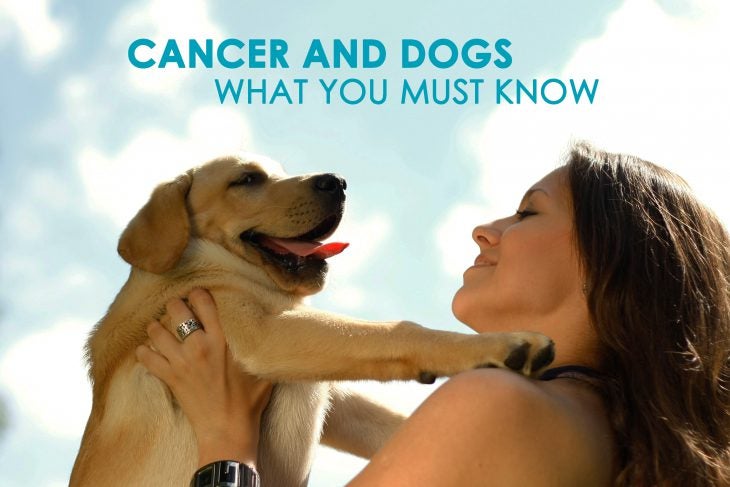Veterinary medical research has discovered that dogs can develop various forms of cancers that if left untreated could prove fatal. It is why you should be alert to changes in your dog’s behavior and physical appearance. Regularly scheduled visits to the veterinarian can help detect cancer in its early stages. In addition, by being aware of the different cancers your dog can develop, you can help save its life.
Is cancer in dogs very common?
As a dog ages, its chances of developing cancer increases. In fact, “Among dogs aged 10 or more, just under half of the deaths are due to cancer.* However, age-related cancer is not the only cause of cancer in dogs.
What types of cancers do dogs develop?
Dogs can develop one of the following types of cancer: a tumor in the lymph nodes, skin cancer, breast cancer, soft tissue sarcomas, and bone cancer.
What are the signs a dog may have cancer?
Typical signs of cancer in dogs are lumps or bumps on the body, a wound that doesn’t heal, unusual swelling in the abdomen, bleeding, or swelling in the bones. However, a dog may not exhibit any sign at all especially in the early stages.
Do certain dog breeds have a higher chance of developing cancer?
The following breeds are known to have a higher incidence of developing cancer: golden retrievers, boxers, and Bernese mountain dogs. But, keep in mind cancer can strike any dog regardless of breed.
What are other causes of cancer in dogs?
Aside from heredity causes, dogs can develop cancer due to the following: viruses, exposure to pesticides, insecticides, second-hand smoke, and harmful ultraviolet rays from the sun.
Are there ways to prevent cancer in dogs?
While cancer in dogs cannot be entirely prevented, there are some things you can do. Reduce the chances of breast cancer by having your dog spayed before its first heat. Reduce oral cancers by practicing good oral hygiene. Limit the amount of exposure to the sun’s harmful UV rays. If you are planning to get a pure bred dog, conduct research to find out which types of cancers are common to the breed. In addition, have your dog examined if you notice anything unusual. It could be the early signs of cancer. If treated early the spread of the cancer can be prevented.
How is cancer in dogs treated?
Similar to a human with cancer, a dog may undergo radiation therapy, chemotherapy or surgical removal of the tumor.
Types of medicines used to treat cancer in dogs:
While not comprehensive, below are some medications used to help treat cancer in dogs:
Palladia tablets are prescribed for the treatment of Patnaik grade II or III, recurrent, cutaneous mast cell tumors with or without regional lymph node involvement in dogs. A safe, powerful formula that kills tumor cells by cutting off blood supply to the tumor.
Vetalog (Triamcinolone) is an injectable steroid with many uses. Vetalog can be used for treating cancers, allergies, skin conditions, inflammatory conditions, autoimmune diseases and pain.
In summary, dogs can and do get cancer. As a dog ages, its chances of developing cancer increases. However, some breeds are more prone to developing cancer than others. In addition, regardless of breed a dog may develop cancer of the mouth, skin cancer, and breast cancer to name a few. Early detection is the best way to ensure a dog survives cancer. Therefore, it is important to take your dog to a veterinarian for periodic checkups.
*Source: Merck Manual Veterinary Manual, “Introduction to Cancer and Tumors” by Manuals Staff. 2016, https://www.merckvetmanual.com/special-pet-topics/cancer-and-tumors/introduction-to-cancer-and-tumors Accessed on December 19, 2016.







